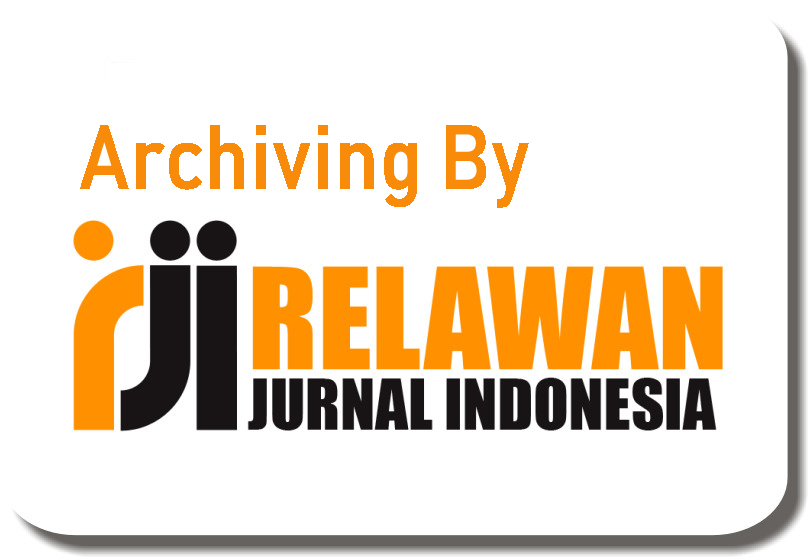An Analysis of Online Learning in Academic Writing Course During the Covid-19 Pandemic at the Fourth Semester Students of English Language Education of FKIP UIR
Abstract
The abolition of in-person teaching and learning activities policy at universities due to the Covid-19 pandemic has resulted in a rapid transition from offline to online teaching and learning process. The inequality of internet networks in Indonesia makes this a challenge for lecturers and students. Academic Writing is also admitted by students as hard material. Hence, this study aims to analyze how the implementation of online learning in the Academic Writing course at the English Department of FKIP UIR. The instruments were an online questionnaire and structured interviews for students and the lecturer. The findings of this study found that the implementation of online learning in the Academic Writing course was held synchronously and asynchronously. Various online platforms support the teaching and learning process. However, many students have struggled with bad internet connections, were enabled to focus during the study, and have difficulty understanding materials.
Keywords
Full Text:
PDFReferences
Al-Ansi, A. M., Garad, A., & Al-Ansi, A. (2021). ICT-Based Learning During Covid-19 Outbreak: Advantages, Opportunities and Challenges. Gagasan Pendidikan Indonesia, 2(1), 10. https://doi.org/10.30870/gpi.v2i1.10176
Anh, D. T. N. (2019). EFL Student’s Writing Skills: Challenges and Remedies. Journal of Research & Method in Education, 9(6), 74–84. https://doi.org/10.9790/7388-0906017484
Cakrawati, L. M. (2017). Students’ perceptions on the use of online learning platforms in EFL classroom. English Language Teaching and Technology Journal (ELT-Tech Journal), 1(1), 22–30. http://ejournal.upi.edu/index.php/ELTTech/article/view/9428
Denmark, A. C. (2012). An online learning platform for English as a second language for young deaf Indian sign language users: Usage patterns and user engagement. PQDT - UK & Ireland, May, 1. https://search.proquest.com/docview/1651908795?accountid=10673%0Ahttp://openurl.ac.uk/redirect/athens:edu/?url_ver=Z39.88-2004&rft_val_fmt=info:ofi/fmt:kev:mtx:dissertation&genre=dissertations+%26+theses&sid=ProQ:ProQuest+Dissertations+%26+Theses+Global&a
Dhawan, S. (2020). Online Learning: A Panacea in the Time of COVID-19 Crisis. Journal of Educational Technology Systems, 49(1), 5–22. https://doi.org/10.1177/0047239520934018
Ghavifekr, S., & Rosdy, W. A. W. (2015). Teaching and learning with technology: Effectiveness of ICT integration in schools. International Journal of Research in Education and Science, 1(2), 175–191. https://doi.org/10.21890/ijres.23596
Harmer, J. (2007). Learning the Language of Practice (Second). Pearson Education Limited. https://doi.org/10.1080/03626784.1987.11075294
Jurianto, J., Salimah, S., & Kwary, D. A. (2016). Strategies for Teaching Writing in Efl Class At a Senior High School in Indonesia1. Celt: A Journal of Culture, English Language Teaching & Literature, 15(1), 43. https://doi.org/10.24167/celt.v15i1.413
Kholisho, Y. N., & Marfuatun, M. (2020). Daya Serap Pelaksanaan Mata Kuliah Kependidikan DiTengah Pandemi Covid-19. Edumatic : Jurnal Pendidikan Informatika, 4(1), 131–140. https://doi.org/10.29408/edumatic.v4i1.2155
Komilovich, K. D. (2020). THE CREATION , USE AND DEVELOPMENT OF EDUCATIONAL PLATFORMS. International Journal of Inovations in Engineering Research and Technology (IJIERT), 7(10), 90–91.
López Henao, J. A. (2017). The Influence of ICT in the Development of Writing Skills through an Online Platform. Matices En Lenguas Extranjeras, 11, 19–44. https://doi.org/10.15446/male.n11.71852
Miles, M. B., Huberman, A. M., & Saldana, J. (2014). Qualitative Data Analysis: A Methods Sourcebook (Third). SAGE Publications, Inc.
Prasetya, R. A., Andari, N. A., & Marom, M. Y. (2020). Fitur Ideal Dalam E-Learning Bagi Mahasiswa Universitas Negeri Surabaya Pada Masa Pandemi Covid-19. Syntax Idea, 2(12), 1107–1122. https://jurnal.syntax-idea.co.id/index.php/syntax-idea/article/view/841
Raja, R., & Nagasubramani, P. C. (2018). Impact of modern technology in education. Journal of Applied and Advanced Research, 3, S33–S35. https://doi.org/10.21839/jaar.2018.v3is1.165
Samir Abou El-Seoud, M., Taj-Eddin, I. A. T. F., Seddiek, N., El-Khouly,
M. M., & Nosseir, A. (2014). E-learning and students’ motivation: A research study on the effect of e-learning on higher education. International Journal of Emerging Technologies in Learning, 9(4), 20–26. https://doi.org/10.3991/ijet.v9i4.3465
Sari, I. N. (2019). Pengaruh Penggunaan GoogleClassroom Terhadap Efektivitas Pembelajaran Mahasiswa Universitas Islam Indonesia. 1–120. https://dspace.uii.ac.id/bitstream/handle/123456789/13733/isna normalita sari.pdf?sequence=1&isAllowed=y
DOI: https://doi.org/10.31004/jele.v6i2.175
Refbacks
- There are currently no refbacks.
Copyright (c) 2021 Lisa Novi Riski, Arimuliani Ahmad

This work is licensed under a Creative Commons Attribution-ShareAlike 4.0 International License.



